Dan Lerner. Culinary tradition
In the name of the mother.
How Dan Lerner is continuing the tradition that his mother began.
Dan Lerner dedicated his tenure at bulthaup Culinary Academy in Tel Aviv to the culinary legacy of his mother, a food writer whose enthusiasm for food was contagious, not just in the family but in an entire country hungry for the good life. Her son goes out of his way to pass on her legacy to a new generation.
March 2011, in a fine-dining restaurant in Ramat Gan, east of Tel Aviv. Gastronomic food critic and writer Dalia Penn-Lerner was awarded the highest decoration by the Chaîne des Rôtisseur’s Israeli Chapter. With her typical modesty, surrounded by family, friends and members of the order, she said: “I am thrilled to be here, it really is fun. I’m not a woman of speeches, I will only say thank you.”
For 30 years Penn-Lerner, known as “The First Lady of the Israeli Culinary World”, served as Culinary Director of the order. She was responsible for checking, approving, and selecting the dishes to be served at the Chaîne’s culinary gatherings. With her vast amount of knowledge, her exquisite palate, a highly developed sense of taste and her strong passion for food, no one could have done it better. Now, at the age of 75, she is stepping down. “I have done my share,” she continued, with some emotion. “It’s time to leave the stage.” A year later, in September 2012, she passed away.
July 2014, south Tel Aviv. Dan Lerner, Penn-Lerner’s youngest son, opens the door to his gorgeous loft workshop on the 11th floor of an industrial building; this is where he writes, cooks, and lives. Throughout the loft the walls are lined with hundreds of cookbooks, evidence of his mother’s long, illustrious culinary career. Dalia Penn-Lerner lives and breathes in every corner of this loft–from her book collection to the hundreds of recipes and articles she published during her long career in Israeli culinary journalism. All of the items are now arranged in binders and cartons by her son, who dedicated his tenure at the bulthaup Culinary Academy in Israel to the enormous legacy left to him by his mother.
In order to comprehend that legacy, one must go back decades to London and a time when Penn-Lerner was a young actress who married Dr. Alec Lerner, a member of the board of directors of Marks & Spencer. As a young lady, Penn-Lerner enjoyed the good life filled with extensive culinary travel and frequent visits to wineries and restaurants with or without Michelin stars. In the late 1960s, as the Six-Day War broke out, the Lerner’s immigrated to Israel–they wanted to contribute to the war effort.
When the war ended, they stayed and Penn-Lerner decided to study at “Le Cordon Bleu” cooking school both in Paris and London. She was tired of her housekeepers’ cooking. The combination of personal ties with international master chefs, the enormous amounts of culinary information she collected, and her natural talent turned her into a food authority. “She possessed a vast amount of knowledge and devoted her time to research and study,” says Chef Erez Komarovsky, a pioneer of the new Israeli kitchen and a close personal friend. “She had such a precise sense of taste, and an ability to decipher flavors and give them historical perspective, actually analyzing the pedigree of every dish. She could identify, out of all my dishes, what was the newest, the best, the most interesting — and she always got it right.”
“Mom loved good ingredients and insisted that food should taste natural,” says Dan Lerner. “She liked simplicity in cooking. She loved to discover chefs who were just starting out and helped promote them. She would call the greatest chefs around the world, who were her friends, and arrange internships for them, never asking for a thing in return.” In the 1980s, Penn-Lerner started writing. It was the first time non-kosher food appeared in any Israeli newspaper or magazine, and her weekly columns brought the message of the international culinary world to Israeli cuisine. “I’ll never be able to step into mom’s shoes,” Lerner says humbly, adding, “Those are very big shoes.”
Maybe he won’t be able to fill her shoes, but his involvement in the field is definitely connected to and affected by her. Perhaps it’s because from a very young age he absorbed food and authentic culinary culture directly into his bloodstream. “While my sister played soccer outside, I cooked with mother,” he says with a laugh. “At first I would watch her. As time passed she allowed me to cook. In fact, for many years I was her sous chef.”
“She taught me everything, from the foundation up: sauces, vinaigrettes, how to hold a knife and use it, how to taste food and how to evaluate a dish. Despite smoking three packs a day, mom had an excellent, precise palate, like a computer. She could uncover secret ingredients in dishes.“
In his family’s home, food was everything. “We talked about it during the meal, we got lectures on what we were eating, we knew where every raw ingredient came from,” says Lerner. “At school I would breezily tell my friends that I had eaten sushi, or lobster, or Wiener schnitzel the day before. They didn’t know what I was talking about. When friends would come over, and they’d open the refrigerator to get some cold water, they would be taken aback because there’d be a bunch of live lobsters, or oysters. It was exotic. Even as kids, we would join our parents on culinary tours abroad, including Italy, France, and Spain.”
With that kind of childhood, it’s not surprising that at the age of 21 Lerner opened his first bar and restaurant, B Square in Jaffa. The menu was built around his mother’s recipes. In the early 1990s, he moved to Switzerland to earn a Bachelor’s of Science in hospitality management and business administration. When he returned to Israel, he managed a few restaurants before going back to Europe for the Marks & Spencer managerial training program in London. From there Lerner went to New York, where he opened Azafran, a Spanish tapas restaurant. “The Spanish tradition is my favorite, and in fact it’s the only cuisine in which I am more of an expert than mom was,” he says. When Azafran closed, Lerner became the Assistant General Manager and Wine Director at New York’s legendary Brasserie restaurant. After 10 years in New York, he returned to Israel to be near his mother, who was already ill, and served as CEO of the Catit group (by top chef Meir Adoni) and as New York City project manager of Breads Bakery, a highly regarded Tel Aviv bakery. Earlier in 2014, he took over the reins of the first bulthaup Culinary Academy. Moreover, he served as a judge in the Kansas City Barbeque Society world BBQ championship, an annual event.
Your mother left behind a rich culinary tradition. In what way are you continuing it? Her legacy is part of me; everything I do in my personal or professional life is influenced by it. She always told me, ‘Follow your heart, don’t cut corners, and don’t sell your soul to the devil, stay honest’. On the professional level, if I look back at my work at the Academy, mom’s spirit is expressed in my attempt to position the institution as a food authority, a place that is a stage for younger, less experienced, less famous chefs. I try to include them in our educational programs. I approach restaurants with leading chefs and ask them to allow their sous chefs to participate. It doesn’t always work.
What marks your own influence in this tradition? My uncompromising insistence on the finest ingredients, within the bounds of kashrut, of course. While it is true that in the end it’s market forces that decide which workshops will be held and which ones won’t, it’s important to me to expose the Israeli audience to cuisines that for whatever reason are less popular here. Israelis love the meat, Italian and Mediterranean food workshops, but are less into Indian, Chinese, or Korean food, for example. Like mom, I believe simple food, simple and precise cooking methods, good raw materials and instructions, and a glass of wine make up the ingredients for a good meal. What is your vision for the academy? At the end of the day, it’s an experiential center. It is not really a classic cooking school, the academy isn’t going to produce Israel’s next top chef, but it is absolutely a center for serious foodies, for people who have seen the world, who’ve had a taste and want to know more about cooking and cooking techniques. Mom always told me: ‘Make it simple, don’t be pompous.’ And so, considering that bulthaup is selling high-end kitchens, it is important to communicate with the academy’s clients at their level, to have them make things they can do at home. It’s important they leave with added value, for them to be able to distinguish different varieties of spices, oils, and herbs. How to read a recipe, to understand its ingredients, to learn new techniques. Let’s give them the tools to understand the whole picture.
If your mother were to teach a course at the academy, what would it be? That’s a good question… I think Indian food. She always said that Indian food was what kept her warm in winter, and she was an excellent Indian cook. Do you miss her cooking? Every day, especially for its simplicity and precision, which I can’t find anywhere unless I reconstruct her recipes. At family events we often make her curry, her artichokes in vinaigrette (see recipe) and other dishes, which eases the cravings.
You’re aware that without the groundwork laid by your mother this conversation wouldn’t have taken place. Without her, an institution like the bulthaup Culinary Academy in Tel-Aviv wouldn’t exist. Absolutely, and that saddens me. When young chefs, food writers, and bloggers don’t know who she was and who started it all, it pains me. Mom never leveraged herself; money and fame never interested her. She did it all out of the love for cooking and for food, and unfortunately she never gained the wide recognition that she truly deserved.
Did she feel that way too? I don’t think she thought about it, I think about it now. In order to change the situation, if only a little, Lerner is currently working on a cookbook and website that will collect and document his mother’s lifelong work and all her recipes – the ones that were published in newspapers and magazines and the ones that only her friends and family had the opportunity to enjoy. With the exception of “Sun, Sea and Food” a Mediterranean cookbook she wrote with two colleagues, Penn-Lerner did not publish any other cookbooks. To be able to focus on this project, her son has handed over his position as head of the Academy to his successor Avner Laskin. “I decided to prepare her recipes and photograph the dishes, as a homage to her and to make her articles more accessible–to others and myself,” says Lerner.
Avner Laskin, a celebrated Artisan Chef and Baker, is now at the helm of the bulthaup Culinary Academy. Just as Dan Lerner’s mother, has was educated at the renowned Le Cordon Bleu cooking school in Paris. He also holds a diploma from the Ecole Lenôtre Bakery School in Paris and is the author of many popular books on cooking and baking.
Dalia Penn-Lerner’s Artichokes with Vinaigrette Ingredients (for 6 portions):
6 globe artichokes
1 lemon, cut in half
4 tablespoons
white wine vinegar or lemon juice
salt
For the dressing:
2 tablespoons wine vinegar
coarse-ground salt and pepper
6 tablespoons olive oil
yolks of two hard-cooked eggs, coarsely chopped
2 green onions or scallions, chopped
1 tablespoon capers, chopped
Preparation: Dissolve salt in the vinegar and add pepper. Slowly pour in the olive oil, stirring constantly. Pour into jar with closely fitting lid, close tightly and shake well. Taste, and correct seasoning as needed. For each artichoke, cut off the stem, close to the base, and slice 3 to 4 centimeters from the crown. Rub the cut edges with lemon to prevent browning. Boil water in a large pot, add salt and the white wine vinegar or lemon juice, place the artichokes in the pot stem-side down, and simmer for 30-40 minutes. Toward the end of the cooking time, check occasionally for doneness: The artichokes are ready when the leaves detach easily. When they’re done, remove from pot, drain, and refrigerate briefly. Place each artichoke on its base, reach into the center of the artichoke from the top, grab the group of thin leaves and with a twisting motion pull it out. Using a spoon, scrape out the fuzzy center that is the “beard,” or choke.
The dressing: Mix the egg yolks, the scallions and the capers into the vinaigrette. Pour about 2 tablespoons of the dressing into the hollowed center of each artichoke and pour the remainder into a gravy boat to serve alongside. To eat, simply tear off a leaf and dip it in the dressing.
From Dalia Penn-Lerner’s “Sun, Sea and Food” / Modan Publishing House
Photo: Shay Afgin

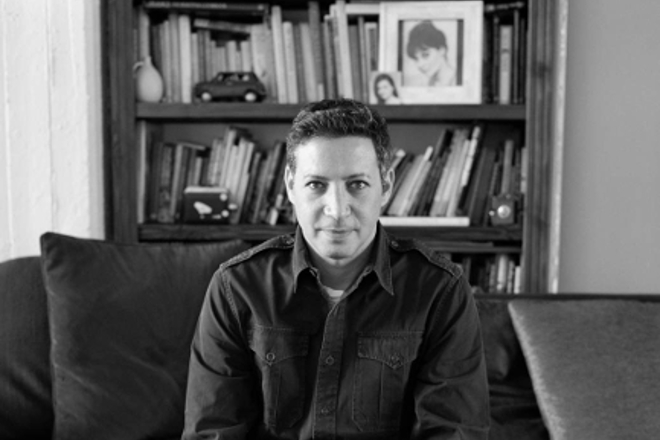
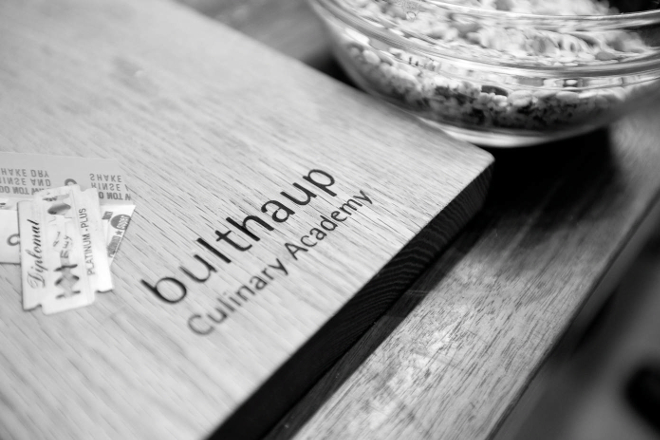
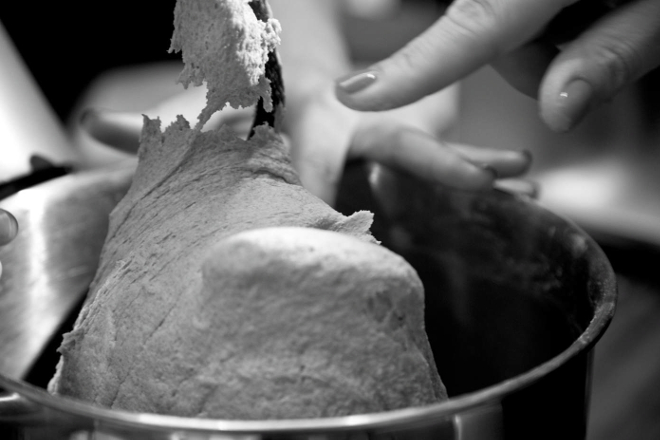
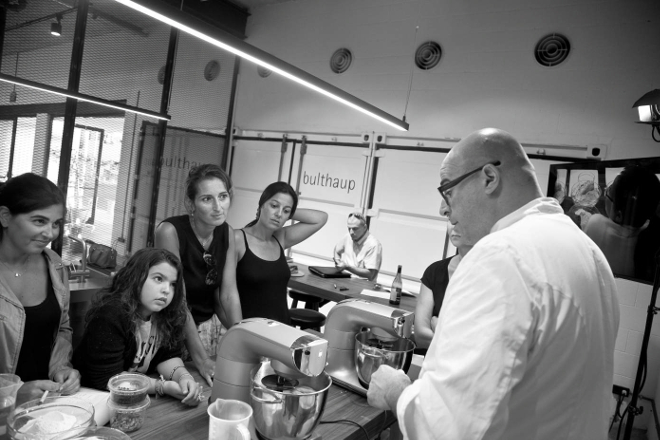
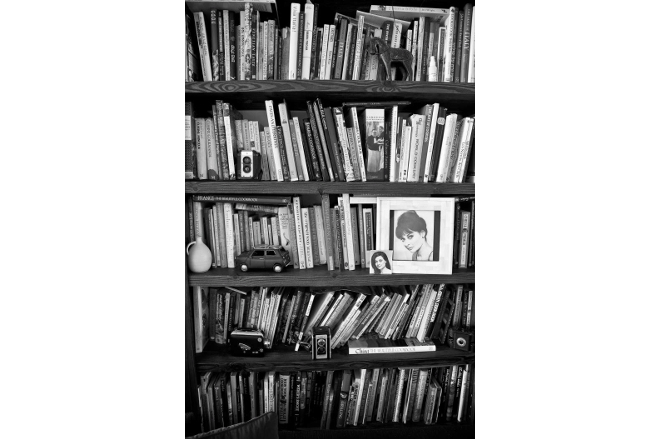
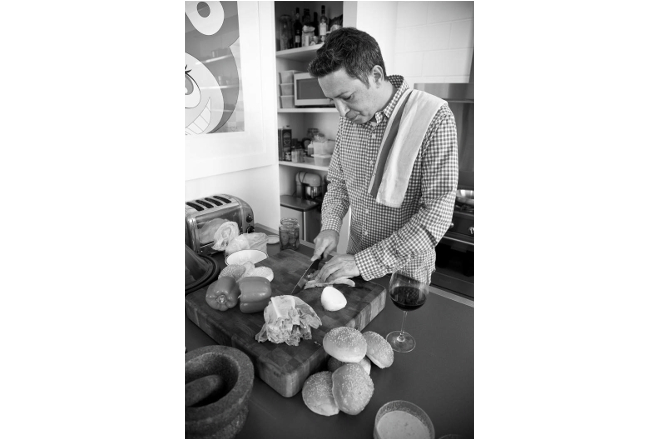

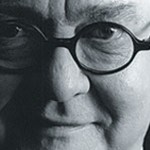



This entry has 0 Comments